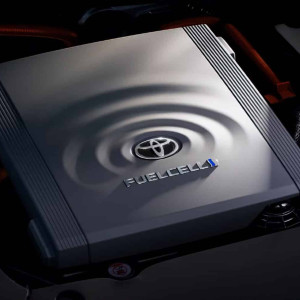Japan targets Tesla’s comfort zone — Next-gen fuel claims to be better than electricity


Tesla must watch out for the automobile developer. With the past decade seeing exponential advances in sustainable and alternative engine technology. Automobile companies and developers are looking to target niche areas in order to showcase their expertise when it comes to producing futuristic engine technology.
While electric engine solutions rose to prominence thanks to the push in advanced battery engine technology and public favorability, other solutions continue to grow in popularity.
Which engine dominates the road?
Today, the internal combustion engine continues to dominate global sales of new vehicles worldwide by a substantial margin. However, in the past decade, alternative engine vehicle sales have continued to rise, flatten, and also see a downward turn. Between 2013 and 2023, the global market share of all light-duty alternative fuel vehicles rose from 2% to 18%, with the battery engine vehicle accounting for most of this group.
The popularity of the electric vehicle over any other alternative engine type can be attributed to a variety of reasons, such as their superior efficiency at converting energy into electricity, the fall in lithium battery production costs, regulatory cooperation, and the effect of American electric vehicle developer Tesla's success in releasing electric vehicles on the market. While Tesla was not the first to put electric vehicles on the road, they were the first to change public perception of the electric vehicle as merely a sustainable alternative for the planet, championed mostly by environmentalists, to a luxury vehicle representing advanced engine development and futuristic technology. Additionally, the company lived up to the hype, with its vehicles demonstrating high-range and advanced technology.
Tesla's rise to fame in the early 2010s pushed other major automobile developers to put their own alternative engine technology on the road in order to keep up with the competition and demonstrate to consumers that they, too, could offer advanced and futuristic technology.
Tesla is targeted by this next-gen fuel from Japan
While the majority of automobile developers have embraced electric engine technology as the future of the passenger vehicle, others have chosen to compete with Tesla's success by diversifying their alternative engine solution offerings. Japanese automobile developer Toyota has made a name for itself in the alternative engine world by choosing to focus their expertise on hydrogen fuel-cell engine technology on top of their electric models. [1] Earlier this year, the Japanese company unveiled their third generation of hydrogen fuel-cell systems.
Dubbed the 3rd Gen FC System, the system highlights a shift in Toyota's focus on developing hydrogen fuel-cell vehicles for commercial vehicles, with the previous focus being on advancing passenger vehicles. The new system is expected to debut in 2026, and is expected to be applied in heavy-duty trucks, buses, stationary power generators, rail, and maritime sectors.
This German automaker expands their engines
To expand their hydrogen reach, Toyota has continued to team up with competitors to assist in developing their own hydrogen fuel-cell initiatives. The company recently announced that they would be collaborating with German automobile developer BMW to provide the fuel-cell system for the upcoming BMW iX5 Hydrogen, which will also incorporate BMW's proprietary powertrain system.
"Both companies believe that working with like-minded partners is essential for realizing a hydrogen society," describes a Toyota September 2024 press release on the partnership.
Toyota's collaboration with competitors[2], coupled with their focus on the hydrogen fuel-cell system beyond the passenger vehicle, is a demonstration of their advancement of their 'hydrogen society' vision, whereby the company aims to expand hydrogen as an energy source in all aspects of energy-demanding sectors to achieve carbon neutrality.
Additionally, it can also be understood as a tactful move to meet the demands of the transportation sector, where battery electric technology is not ideal.
Disclaimer: Our coverage of events affecting companies is purely informative and descriptive.
Under no circumstances does it seek to promote an opinion or create a trend, nor can it be taken as investment advice or a recommendation of any kind.
References
- ^ on top of their electric models. (www.ecoticias.com)
- ^ Toyota's collaboration with competitors (www.ecoticias.com)